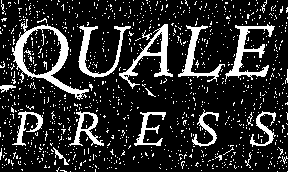For noted poet John Olson, the French painter Georges Braque embodies "the seeing machine"—one of many artists who challenged the accepted views of perception and expression during the early twentieth century. Imaging Braque's life from the First World War until his death, Olson's lyric and charged prose delves into Braque's mind after he endures a serious head wound in WWI, and then struggles to resume his art—to resume his alternate way of seeing. In The Seeing Machine, Olson lets the reader experience what he imagines Braque saw. Braque's Cubistic ideas of multiple perspective, disjunction and collage leap from the page. The story is not so much Braque's life but rather with Olson's exploration of Braque's deep fascination with the dynamism of sight and the stories inherent in color. Braque was a more solitary and private man (than, say, Picasso), and through his fascination with all sorts of expression, developed close relationships with such prominent French writers as Francis Ponge, Pierre Reverdy and Max Jacob. War figures throughout the novel as a deterrent to artistic and spiritual consciousness, and the presentation of the fascism of the 1930s and 1940s is pertinent to understanding the fascistic tendencies of our own era.
Praise for The Seeing Machine
"The Seeing Machine by John Olson is billed as a novel, and it is that, but it is more. It is a perfect balance of a biography of the great French Cubist painter Georges Braque and the author’s imagined story of this man’s inner life. Braque’s world was seen through the eyes and mind of someone thoroughly absorbed in his exploration of the things and people around him. He truly was a 'seeing machine' in that sense. Olson is a master of the prose poem, and there is little in this 254 page book that isn’t poetry of the first order — yet it is as accessible and as free flowing as any newsstand best-seller. Readers interested in the visual arts will be riveted, while non-artists will be afforded a clear view of the painter’s side of the canvas." —Lee Chapman, First Intensity Press
Praise for John Olson's other books:
“A wonderful serving of similigetti topped with a saucy sauce of metaphoratutti. Easy on the sanctimony and just greatilicious. A Good night out. Gotta be Five Stars!!!!” —Philip H. Red Eagle, The Raven Chronicles. On Souls of Wind.
“The pen of John Olson creates spectral spectrums, ghostly gamuts, kaleidoscopes of concatenations coruscating across the nations of the understanding, spinning off the globe of the intellect far beyond the Kuiper Belt of the known human soul. His songs of possibilities and imaginings carry us into a familiar land we always longed to visit, but never quite knew existed. Let John's verbal cascades spray you with polyphonies of innuendo. Let his words lift your eyes to the heights of intuition that you may see what he cannot tell you. Enter into his limbo of infinite gradation, because its specters and spectrums will glow and harmonize only if you do so. You owe the personal experience of this book both to yourself and to the world of others John's pen has set free.” —Willie Smith, Oedipus Cadet. On Souls of Wind.
"John Olson is writing the most outlandish, strange, and inventive prose poetry ever in the history of the prose poem. Olson’s writing is so agitated with transformation that it can barely contain the skin of its own given language. It is a volcanic, fresh, and scalding rush." —Clayton Eshleman, author of numerous books of poetry and essays. On Free Stream Velocity.
"In the stream of these astonishing observations, science and surrealism are a single wave, charged with riotous particles, that only Olson Laboratories has the capacity to record. From DNA to the deep fields of space, to our world of shopping carts, birdhouses, and anchovies, John Olson’s ecstatic science tests for the truth of our chemicals, and our syntax, in bursts of intelligence, compassion, and delight." —Joseph Donahue, author of the Terra Lucida poetry series. On Free Stream Velocity.
"John Olson loves language more than any poet I know. His work just keeps getting better, which is why the publication of this book is an event." —Spencer Selby, poet, author of Flush Contour.
"There is something athletic and ruthless about the way Olson does so many things at once, as well as something strangely at ease. His writing is fully experimental and full of experience. It has range and urgency and poise. In every sense, it’s wild." —Christopher Frizelle, The Stranger. On Oxbow Kazoo.
"Nature makes leaps; and the poetry of John Olson makes leaps. The series is exponential: Olson’s rejuvenation of realism follows the nonlinear lightning-path between world and word. Here, the simplest ingredients interact to produce unprecedented complexities, global cloud-systems of passion and insight. Fed into this vortex, everyday verities are quickly accelerated to the velocity of the Marvelous. The Olsonian sentence is an explosion fixe sparked by the uncanny coincidence, a speech-act spinning like an unknown home, making infinity fit for human habitation." —Andrew Joron, author of The Cry At Zero. On Oxbow Kazoo.
"Performative bursts, fests of play and wonder, and nervous in the best possible way, these quivering prose poems directly address Language and its chief sidekick, Life. They pull the reader immediately into the thick of language’s plastic pretenses and hilarities. A great delight." —Stacey Levine, author of My Horse and Other Stories. On Oxbow Kazoo.
"John Olson can stretch the language to fit the most diverse and delicate of subjects. With a sensibility both comic and dark, he shows the rest of us how deeply complex and various English can be. Olson is at the cutting edge of writing today." —Edward Foster, editor of Talisman. On Oxbow Kazoo.
|
